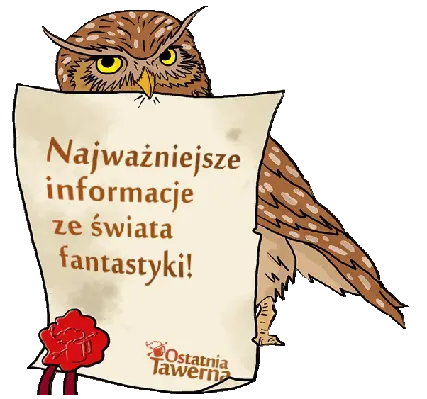For teenagers, but not only
Ultimately, the Silna collection is to reach young girls, high school students and those who are slightly older. When I think about myself at that time, I would probably welcome him with open arms, although… the mix of genres can make you turn your nose. A crime story, psychological prose, fantasy and a surprise at the end, because Dominika Słowik could be expected to have texts beyond any classification. Ultimately, however, I would classify most of the stories as fantasy, so the book is unlikely to appeal to lovers of “serious” literature (I was a teenage snob myself, trust me ).

Good writers
Silna is an ideal collection for people who would like to find out what’s going on in the latest, but already recognized, Polish literature. It is opened by authors who are recognized as important female voices, rewarded, and that spark discussions about how life in our country is for young people, families and girls. Anna Cieplak wrote about teenagers in “To be clean” , while Natalia Fiedorczuk made her debut with the famous How to love shopping centers , where she wrote about the difficult experiences of early motherhood. The stories of these authors, included in Nails , are short, sparingly written and, in a sense, enter into a dialogue – Cieplak’s narrator is an adult who wants to help a teenager, while Fiedorczuk is a high school student trying to cope with school violence.
Now about what you are waiting for as readers of The Last Tavern – fantastic in this collection. We have two of the most famous names here of the last few years – Aneta Jadowska and Katarzyna Berenika Miszczuk. Thanks to the first one, you will return for a moment to Toruń from Thornverse, where Chicken will implement the principle “you will never walk alone”. Neither was he walking alone. The second author will throw us into the middle of the war-ravaged Somni, and her heroine will have to remember that she is, has always been, strong. Finally, Agnieszka Płoszaj, associated with a crime fiction, wrote a strong urban fantasy story , a bit in the style of Constantine .
At the end, a cherry and a surprise for the whole volume – postapo from Dominika Słowik. Until now, her books were classified as psychological literature or magical realism (she herself did not agree with the latter). In Zimowla and her debut, Atlas: Doppelganger showed that she has great control over words, draws the reader in, confuses tropes, and can create an amazing mood. Girls are not afraid of the dark , as far as I know, her first trip to genre literature per se . And I personally want more. This is a fantasy of the highest order.

How strong is she ?
According to the blurb on the cover, we are to decide what this adjective means to us. I am not sure if the volume has so much emancipatory charge as to evoke the readers’ desire to rebel or fight for theirs. It can certainly be reassuring. At the same time, we come across well-known motifs – the loneliness of the protagonist (in Fiedorczuk or Płoszaj, a bit also in Cieplak), the need to overcome pain in the name of independence (Miszczuk), focus on others, not on ourselves (Cieplak, Miszczuk). The slogans of our newest banners, sisterhood, sticking together are included in their texts, above all, by Jadowska and Słowik. Perhaps that is why these two versions of Nails appealed to me the most.
I hope that this anthology is not a one-off event, but together with the volumes of Hardy Horde stories or Cyberpunk Girls, it will build a broader trend. I think we need (regardless of age) such collections. First, to be together more often. Secondly, to be able to look at Polish literature, including genres that we usually do not reach for, and hear different voices. In this respect, Nails really stands out, because she collects individualities important for a few rarely touching reading territories. And as an eclectic reader, I really appreciate not sticking to rigid frames and divisions.

